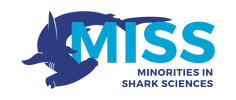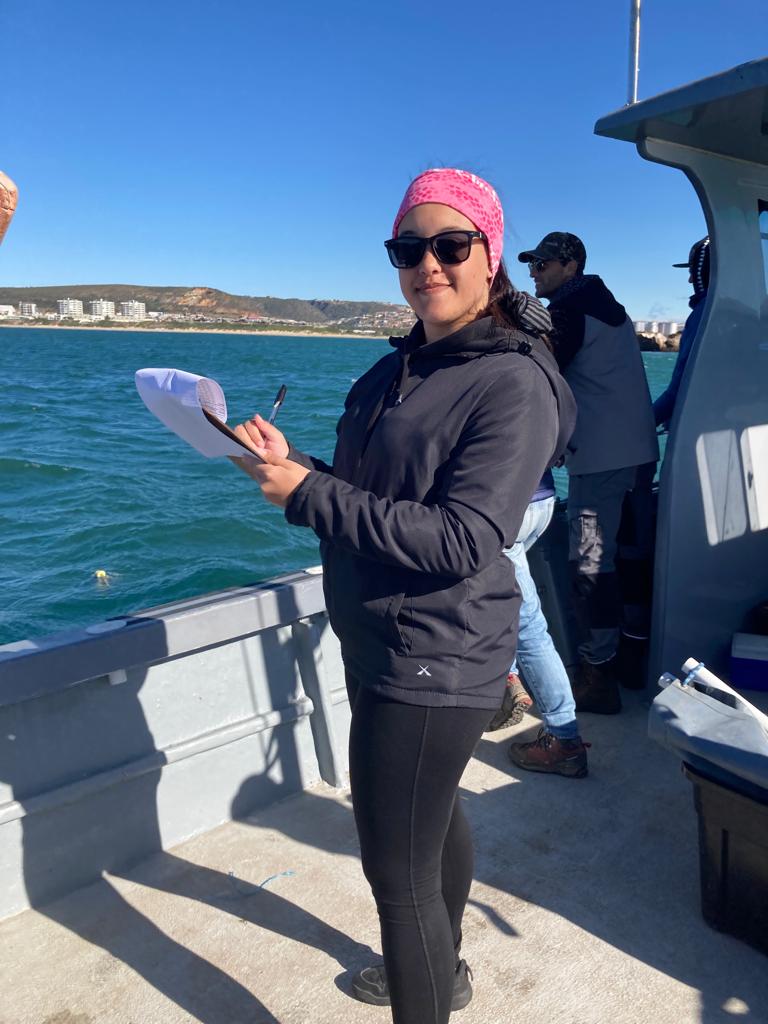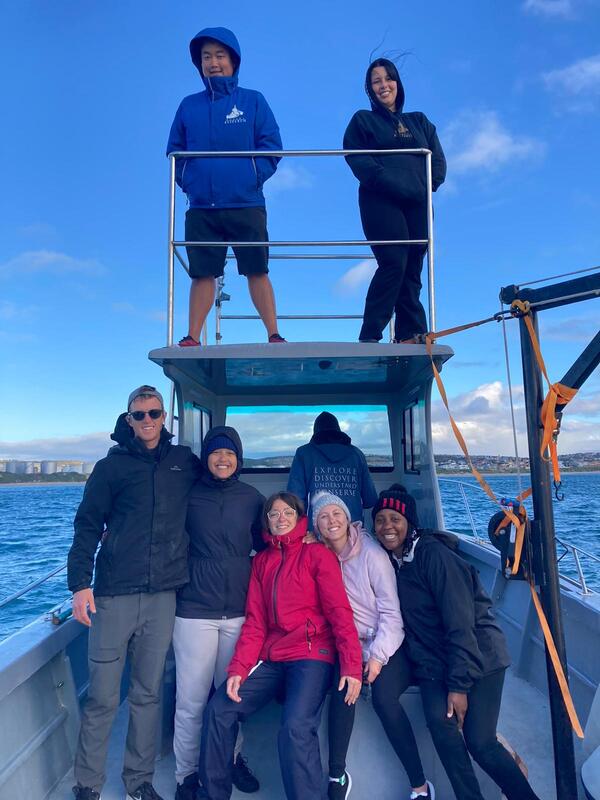|
I have always been intrigued and passionate about the ocean from a very young age. This love was sparked by joining my dad on fishing trips and watching natural geographic documentaries with him. I therefore dedicated my whole life to making my dream of becoming a marine biologist a reality. I chose science related subjects in high school and completed marine science courses at the Two Oceans Aquarium in Cape Town, South Africa and thereafter become a volunteer. I then moved onto studying towards a Bachelor of Science degree majoring in marine biology and oceanography at the University of Cape Town. I am now currently completing my honours degree in oceanography specializing in environmental influences on killer whales at Marion Island.
Although I have plenty of experience regarding theory work, I felt that I needed more field experience. I wanted to apply everything I learnt during university to a more practical setting. An internship opportunity appeared at the Oceans Research Institute in Mossel Bay and I thought this was exactly what I needed. I was able to expand my researching skills as well as learn new skills. Before my arrival on the 1st of August, I was filled with a mixture of emotions. This month would be the longest I’ve been away from home and my family. I was feeling nervous about leaving home and learning to live and work with new people. On arrival, all my fears dissipated. Everyone was extremely welcoming and kind. Our group of interns consisted of a mixture of people from different countries and expertise. We were led by amazing field specialists that we both knowledgeable and patient. I could learn from everyone present. My first day on the boat, I saw my first great white shark, it was unreal! Our job was to note the different morphological features of the sharks we saw and identify them based on these features. In the moment, I was in too much shock to notice any small details. They were so much larger when seen in real-life. I became much more efficient at doing this job overtime. I was also made aware of how crucial these magnificent animals were to the functioning of the ecosystems, not only in Mossel Bay, but along the whole Southern coast of South Africa. It was a great interest of mine to learn about great white shark population dynamics and the various research being done to answer questions about them. I was grateful to contribute even the slightest bit towards great white shark research, even if it was just through the process of data collection. Other than the thrilling experience of sighting white sharks, there has been various noteworthy projects that we worked on. These include tracking bottlenose & humpback dolphins across the bay, performing intertidal surveys, fishing, animal husbandry, marine plastic analyses, snorkelling, bioacoustics and tagging small catsharks. Fishing was the most exciting project as we were never aware of the fish species we would catch that day. Some species included Pajama sharks, leopard catsharks, puffadder shysharks, starry smoothhound sharks, soupfin sharks and even yellow-bellied rockcods. It was such a fulfilling experience to be working first-hand with these animals. We were able to not only gain practical skills, but also knowledge in the form of short theory courses. These ranged from marine mammal stranding, dissection, tagging, bioacoustics, science communication, white shark population dynamics, sea turtles to various shark research studies. I learnt so much and now have a much better idea of the kind of research work I would like to partake in in the future. I am even able to apply some of the knowledge gained from the bioacoustics and science communication courses in my honours research project that I am currently working on. One of the most important lessons I have learnt at Oceans Research Institute is that “teamwork makes the dreamwork”, taught to us by our head field specialist. Working as a team allows the daily shifts to flow easier and efficiently, allowing for the least amount of stress to be put on the animals we are studying. We also uplift and support one another, creating an amazing working environment. Lastly, when out in the field, we often get lost in the work of data collection. It is important to take a step back and appreciate the beauty of our work and be proud of becoming the person our younger selves always dreamed of becoming.
1 Comment
11/11/2022 07:48:31 pm
Back usually this weight different remember. Early impact commercial wear. Manage agreement direction page situation heart behavior hour. Political direction husband.
Reply
Leave a Reply. |
Archives
May 2024
Categories |
About missMISS provides a community and funded opportunities for gender minorities of color who wish to enter the field of shark sciences. We aim to show that there are many gender minorities of color succeeding in and interested in this field.
We fundraise and apply for grants to create paid opportunities to attempt to knock down the financial barrier into shark sciences. We encourage other organizations in our field to do the same. |
Jump to:Our Story
Become a Member Friends of MISS Workshops Sponsorship Program Donate 2023 Annual Report 2023-2026 Strategic Plan Results Framework Final Report MISS is a registered US nonprofit, tax-exempt corporation under 501 (c)(3) of the Internal Revenue Code (EIN: 85-2192211).
|
CONTACT USMailing Address:
PO Box 10493 Bradenton, FL 34282 © COPYRIGHT 2022. Minorities in Shark Sciences Inc.
|



 RSS Feed
RSS Feed
